Contact Form
You can email us at info@immersionvr.co.uk. Alternatively, you can fill in our contact form below and we will get back to you as soon as possible.
A virtual tour, or VR tour, is a digital walkthrough used in the real estate industry that allows prospective buyers to carry out a full property viewing online. A typical virtual tour comprises of either still images or videos of a property. The shots are carefully merged together to create a digital space that is practically indistinguishable from the real property.
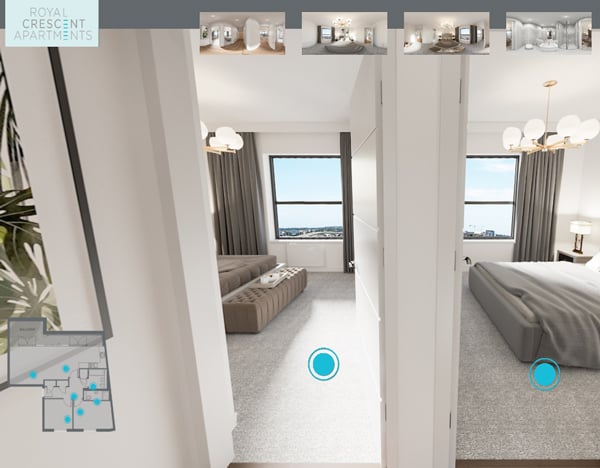
The viewer can view the tour on any device, including mobile, and they can click on the screen to explore the various rooms in the property. VR tours usually feature a floor plan to enable the viewer to better understand the space. Background music or sound effects are also often used to help create ambience.
VR tours can also be produced for properties that have not yet been completed. Using a technique known as VR visualisation, photo-realistic interiors can be created from plans.
Take a look at a virtual tour below that we produced at Immersion VR. Wait for it to load and then close the message to view the tour. You can click or swipe on the screen to explore the property.
The main purpose of a virtual tour is to provide prospective buyers with a detailed first viewing of a property. A virtual tour is not meant to replace in person viewings, but rather ensure that the physical viewings are qualified.
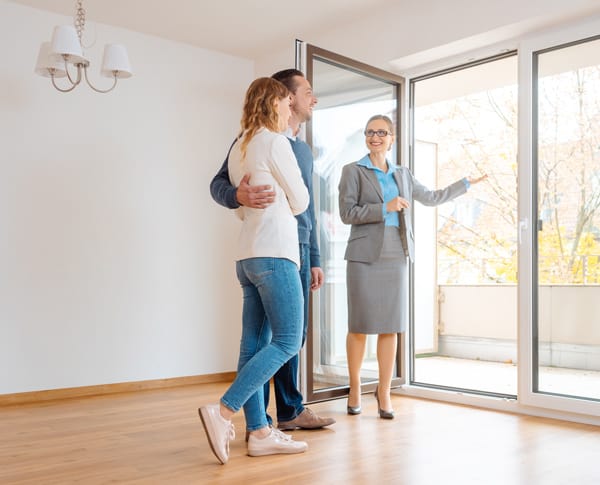
By viewing properties online in much more detail via a virtual tour, buyers can better narrow down the properties that meet their criteria. This process can save an estate agent a significant amount of time, as well as creating an immediate impression with viewers.
With around 95% of households in the UK now owning a smart phone (see graph below), the potential reach online is massive.
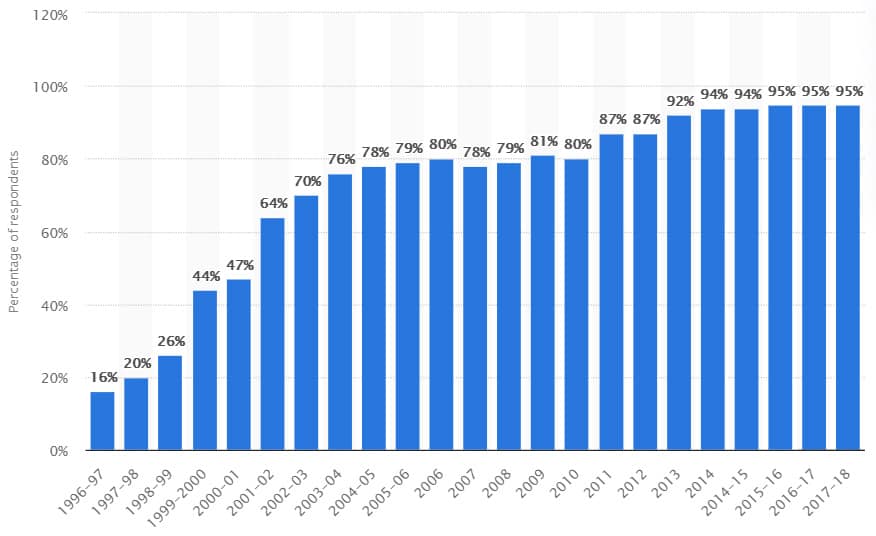
But with so many estate agents online today, it can be difficult to stand out from the crowd. Offering customers virtual tours can really help an estate agency to distinguish themselves.
Agencies that offer VR property tours benefit from an improved brand image and reputation. With VR at the forefront of modern technology, agencies that embrace them position themselves ahead of other, traditional estate agencies.
With a virtual tour, you can present the property in the condition that you want it to be presented in, every time. This means that upon viewing the property online, the users will see the property in the daylight and when the property is clean and tidy.
When people are considering various properties online, a virtual tour tends to be much more memorable than regular images. Prospective buyers will generally be more likely to return to a website to look at a virtual reality real estate tour.
Many users find it difficult to imagine themselves in a property by just looking at pictures. However, a VR tour offers a much more realistic view of a property online when compared to regular images.
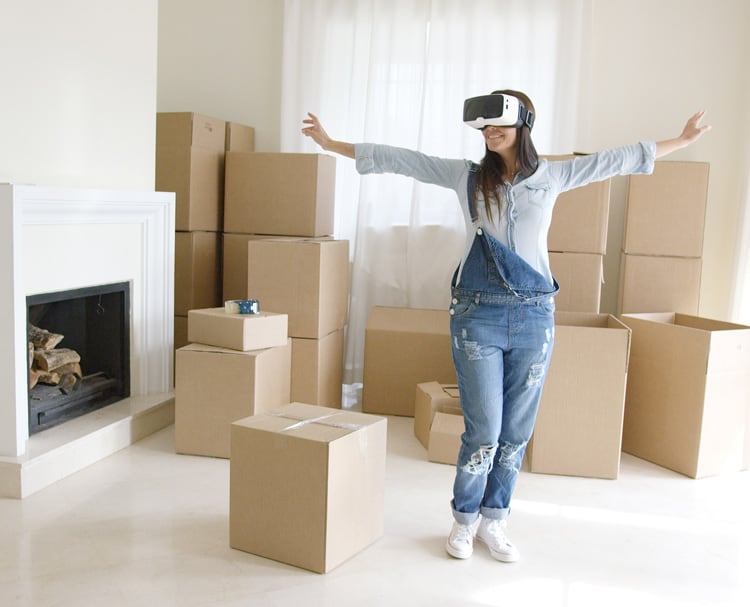
Because users can explore the entire 360 degrees of a space, as they would in real life, they generally find it easier to picture themselves in the property. This is extremely powerful for marketing a property, because viewers find it easier to imagine themselves living in the property.
Many buyers are very limited by the times and days that they can make property viewings. Being able to carry out a viewing online, they can take a tour of the property at any time that in convenient for them.
The most convenient time may be at night, for example. This would not be ideal for an in person viewing but with a virtual tour, they can view the property in natural light. They will also be able to view the tour as many times as they choose.
Many people with limited mobility, such as wheelchair users and older people, struggle to make property viewings. Offering virtual tours allows an estate agency to appeal to every member of the general public, including those that struggle with mobility.
Being able to explore the entire property in a 360 tour, also enables the user to assess whether the property is suitable for their requirements. This allows them to filter out those properties that are not suitable and only visit the ones that are.
Vendors also benefit from virtual real estate tours as they will likely not have to attend as many first viewings. Many of these first viewings will now be carried out online as opposed to in person.

The increase in qualified viewings also increases the chance of a quick sale.
Virtual tours can help to sell all kinds of real estate properties, from houses and apartments to offices and commercial buildings.
One of the most important ways in which a virtual tour helps to sell a house is through virtual staging. Staging is a well known method of improving the chance of a sale by preparing the house and its furnishings in a way that allows the property to appeal to its target market.
Using VR, a property can be staged digitally, without having to use physical furnishings. This can save the estate agency both time and money.
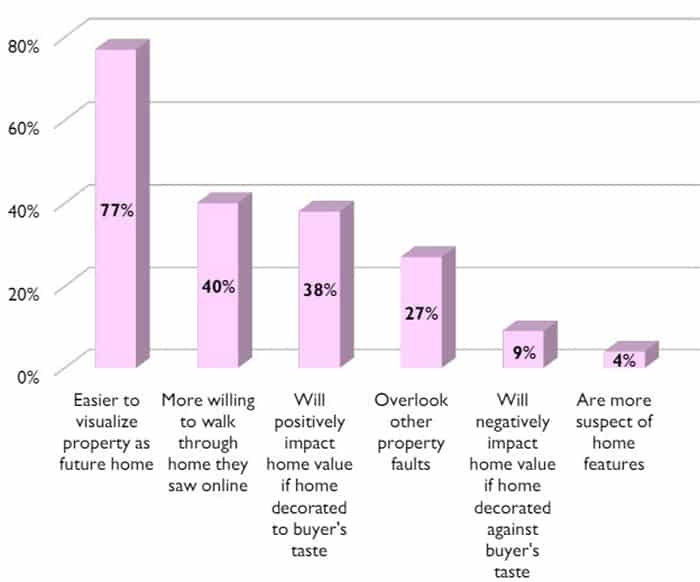
The easiest way to make a virtual real estate tour is to hire a company like Immersion VR to produce the tour for you.
A professional VR company, such as Immersion VR, arrives at the property with specialist cameras and rigs in order to capture the highest resolution images possible.
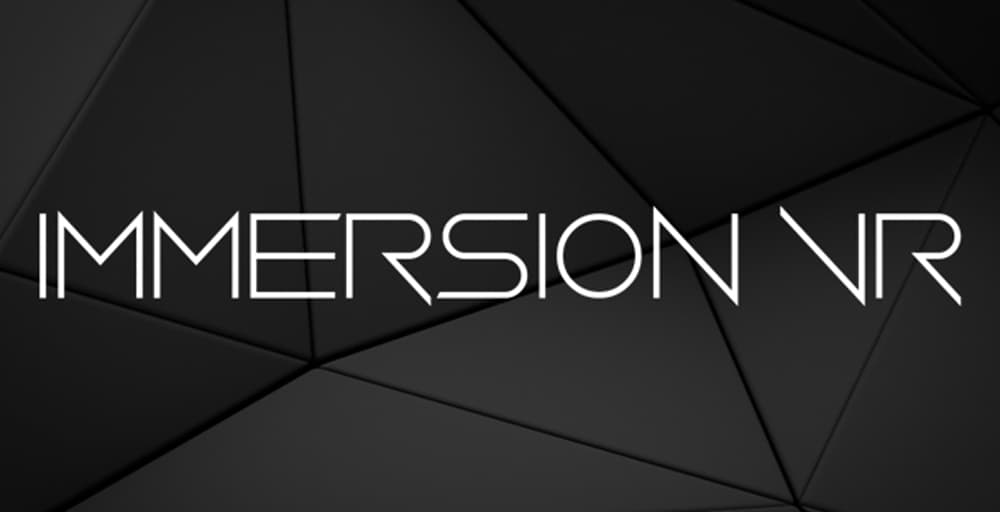
The images are then stitched together in the studio using specialist software, such as Mistika VR, to create a 360 degree virtual tour.
There are basically 2 types of VR that are used for virtual tours; 360 photography, and VR video.
360 photography enables the production of interactive VR tours, in which the user is free to choose which room they would like to view. The advantage of this technique is that is gives the viewer more freedom to explore the property, just as they would in real life.
The user is also likely to spend a lot of time with the tour. Giving the user so much freedom allows them to explore the property in great detail.
One technique for producing a VR tour involves utilising VR video as opposed to 360 photography. This method allows for a virtual guided tour of the property with an estate agent.
When the video is shot, the estate agent can provide the audio for the tour. This allows the agent to provide a tour of the property that is more similar to a tour they would conduct in real life.
Alternatively, a VR video can be produced without an agent if that is more practical. The video can still focus on the main features of the house, to help with the sale.
Each has their own advantages and disadvantages and one is not necessarily better than the other. The best method will depend on the particular property, estate agency, and budget.
360 photography is often seen as the preferred method as it allows the user maximum freedom, and an estate agent is not required at the shoot. However, it doesn’t allow the filmmaker and estate agent to control the narrative as much as with VR video.
Using VR video allows the estate agent to point out the important features of the property and focus more on the sale.
At Immersion VR we offer both types of virtual tour and we work with the client to choose the best type of VR for them. Don’t worry if you are unsure about the process and technology, any good VR company will talk you through the options and explain everything in an easy to understand way.
VR, or 360 visualisation is the creation of CGI (computer generated imagery) photo-realistic interiors and exteriors of properties that have not yet been completed.
A 3D tour or a 360 video can be produced from plans and designs. This allows prospective buyers to take a complete tour of a property before it has been completed.
Developments that are still in the planning or construction phase can be advertised online using this cutting-edge technology. With the visuals being practically indistinguishable from real life, the properties can be presented exactly how the developers want them to be.
The video below is a teaser video shot by us at Immersion VR, showcasing our photo-realistic real estate CGI interiors.
VR visualisation is an incredibly powerful tool, allowing for the marketing of developments like never before. Landscape visualisations can even be produced to show exactly how a development and its surrounding area will look once completed.
VR is a growing industry and it is likely to play a vital role in the real estate industry going forward. With the technology constantly improving and gaining popularity, more buyers will be attracted to virtual tours.
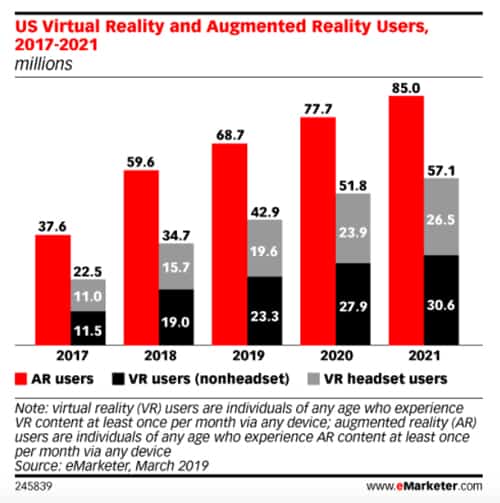
In our view, 360 property tours are a far superior way to view a property online than just regular images. In fact, they act as an effective first viewing, increasing the number of qualified viewings.
With estate agents, buyers, and vendors all benefitting from the technology, we think virtual tours are going to play a vital role in the real estate industry in the future.
Here at Immersion VR we are specialists in 360 photography and VR videos. We have produced many virtual real estate tours for clients across the UK.
Get in touch today to find out how we can help you to produce VR/360 property tours.
You can email us at info@immersionvr.co.uk. Alternatively, you can fill in our contact form below and we will get back to you as soon as possible.